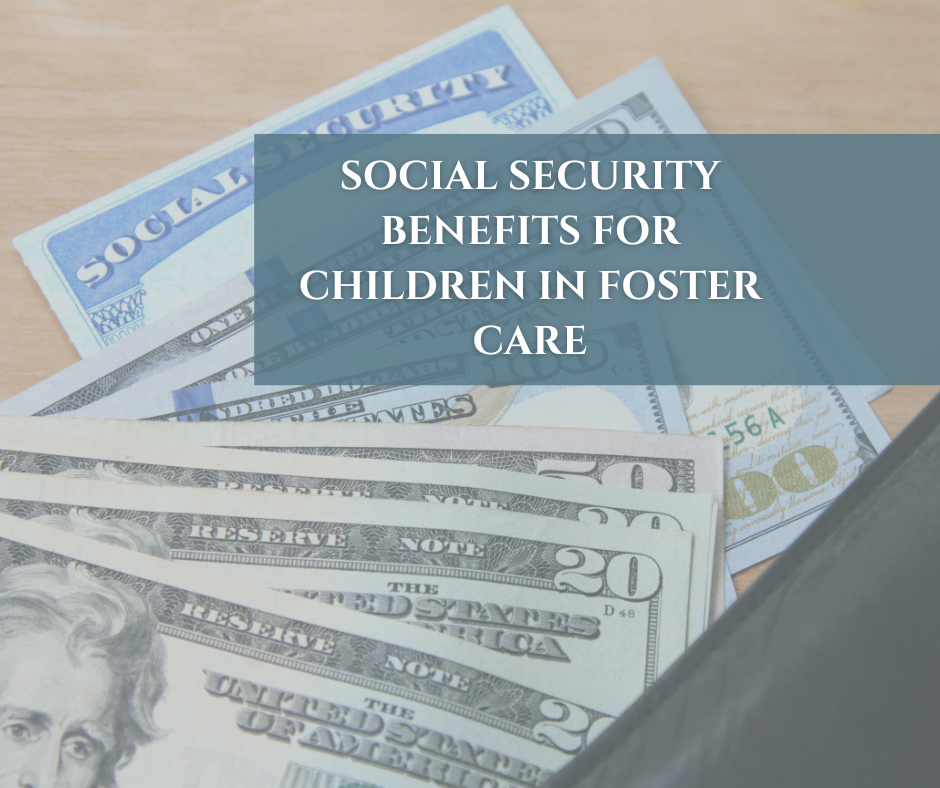Many children in foster care qualify for social security benefits; however, what happens to the benefits received by the Title IV-E agency (foster care agency) as payee can vary state-to-state. Over the past couple of years, there have been numerous articles about states that collect social security checks for children in care and use the money to cover the costs of the children’s care. There has been a push to end foster children paying for their care while in foster care (see a recent article on this topic here).
Children in care who receive social security benefits have met one of two criteria to qualify: (1) one or both of their parents are deceased (and meet the social security criteria for survivor’s benefits); or (2) the child beneficiary has a serious physical or medical condition that “seriously limits his or her activities” as defined by SSA, which is expected to last at least one year or eventually result in death (thus approved for SSI). When social security benefits are approved for a child beneficiary, a “payee” receives the benefits on behalf of the child beneficiary, and the funds are intended for the “use and benefit” of the child, and any benefits not needed for current maintenance of the child must be maintained for the beneficiary’s future needs. Where a Title IV-E agency receives federal foster care payments for a child, the Title IV-E agency is to consider whether the child has unmet needs exceeding what the federal funds cover and can then use the social security benefits to fund those unmet current or future needs. The Social Security Administration (SSA) does site reviews and reviews annual accounting reports to ensure that the payee is using the benefits in the best interest of the child beneficiary. It is important to understand if the social security benefits are SSI, the child’s assets can impact continued eligibility for SSI (i.e., generally speaking, a single person is ineligible for SSI if they have countable resources exceeding $2,000.).
Presently, in some states, there is inconsistency regarding who pays the foster care expenses. Some states use social security benefits to cover the foster care costs of the children, meaning the children effectively pay for their own care. On the other hand, children whose parents do not meet criteria for survivor’s benefits as well as children who do not qualify for SSI in those same states have their care paid for with taxpayer dollars. Arguments are being made that states should set aside these benefits so they can be used to assist children as they age out of foster care and make plans for their futures. Hopefully, if this change is made, the Title IV-E agency will give notice of the possibility of social security benefits and apply for benefits for qualifying children.
You do not have to be wealthy to adopt from foster care.
For more information, call us at (800) 874-4916 or visit Heart of Adoptions Alliance, Inc.

